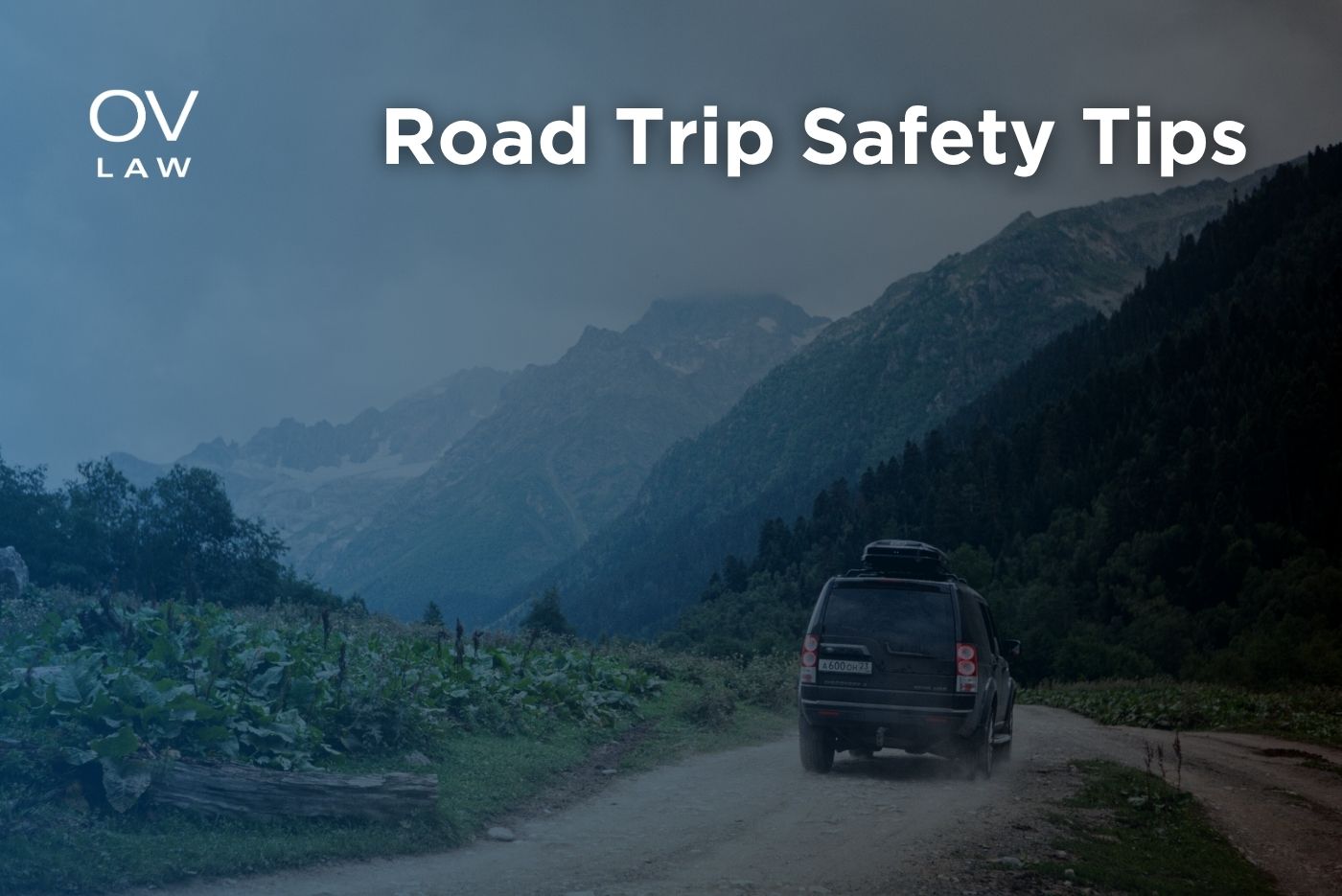Road Trip Safety Tips

With better weather comes road trip season. It is the perfect time to get out and explore our country without simply flying to your destination. But with more vehicles on the road, it is also a time when car accidents become more frequent. That is why it is important to take steps to stay safe and avoid preventable accidents.
I have a long history of roads trip and have, over the years, learned a few things you can do to make the entire experience safe and enjoyable – while lowering your risk of getting into a car accident.
The first thing you want to consider is the vehicle in which you will be taking on your road trip. Most of my road trips in my youth were done in decidedly substandard vehicles that tended to, as one would expect, break down. I cannot begin to tell you how many times I have been stranded on the side of some road in the rural Ontario area. I had to wait hours and spend considerable amounts of money to keep the trip going.
Breaking down on the side of the road can also increase your chances of being involved in a collision, especially if visibility is poor or traffic is heavy. The mosquitoes alone are enough to make you want to avoid breaking down in the middle of nowhere.
You will want to ensure that the vehicle you have is in good operating condition to avoid accidents or breakdowns. Make sure the fluids are all full and that the tires are in good condition. Ensure that you have a spare tire (or run flat tires). Make sure you also have all the parts to the jack, and if you must, look at YouTube and figure out how to change a tire.
It is also a good idea to have some extra fluids such as: oil, coolant, perhaps windshield washer fluid, in the car, in case you end up too far from a service station.
Having considered the safety of your vehicle, you must also consider your personal safety and accident preparedness. Most people who have never done an extended road trip in Canada will find it hard to comprehend how big this country is. You could find yourself a ten-hour drive (or perhaps even more) from any type of settlement. Breaking down in the middle of nowhere, in addition to being frustrating, can be dangerous. You may be stuck for a while (even if you do have cell service to call for help). In some of the more rural areas, it would not be surprising for several hours to pass before you see another vehicle.
It is also a good idea to pack water, some food, a small first aid kit, blankets, insect repellant, batteries and a flashlight. You should also pack a portable charger for your phone. The only thing worse that having a phone with no signal is having a phone with a signal and no power. The only thing that perhaps makes that worse is dealing with a dead phone and being hungry. Planning ahead can avoid all of that. You may be stuck, but at least you have increased your chances of calling for help and have something to eat and drink.
With regards to the route and destination, planning ahead is important. Look at a map and get an idea where you are going and how long it will take to get there. You want to be careful not to drive too long and become overly fatigued. You also do not want to find yourself many miles from a town or city (or anything else for that matter) and not be able to drive safely to the next destination. A little planning can avoid this problem.
By following these steps, you can increase the chances of having a successful, fun and safe road trip.
Unfortunately, accidents can still happen, even when you have taken every precaution. One final tip – as I noted above, this country is vast. You can drive many hours in some places before coming to a gas station. As a rule of thumb, never pass a gas station with less than a half tank of fuel. You may, as I have, live to regret that decision.
If you, or a loved one, has been injured in a car accident, it’s important to understand your rights and the legal options available to you. Contact our personal injury team for a free consultation to discuss your case and learn how we can help.
Contributors

Brian Cameron joined Oatley Vigmond in 1999 after obtaining his law degree from Western University. Beginning his journey in an articling position, fresh out of law school, the first case he argued in court was a small claim’s trial for the firm’s then-senior partner, who was suing a dry cleaner who’d lost three of his dress shirts. Brian won that action for $285 plus costs, and has been with the OV team ever since. He became a partner in 2008.
